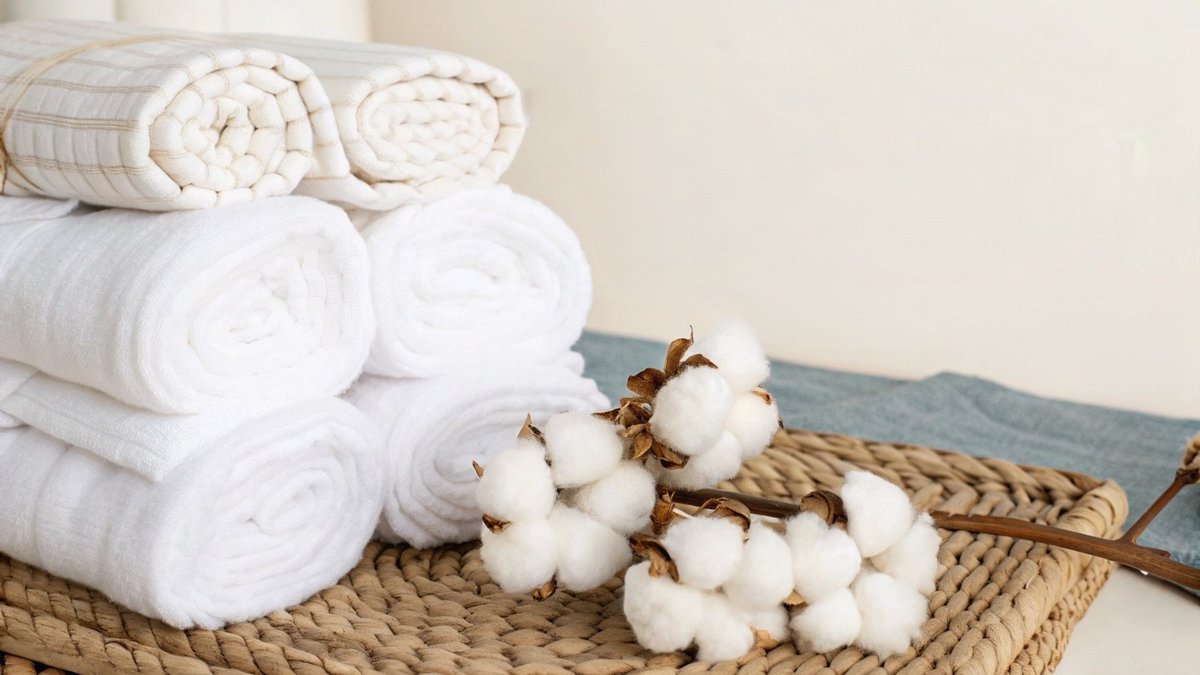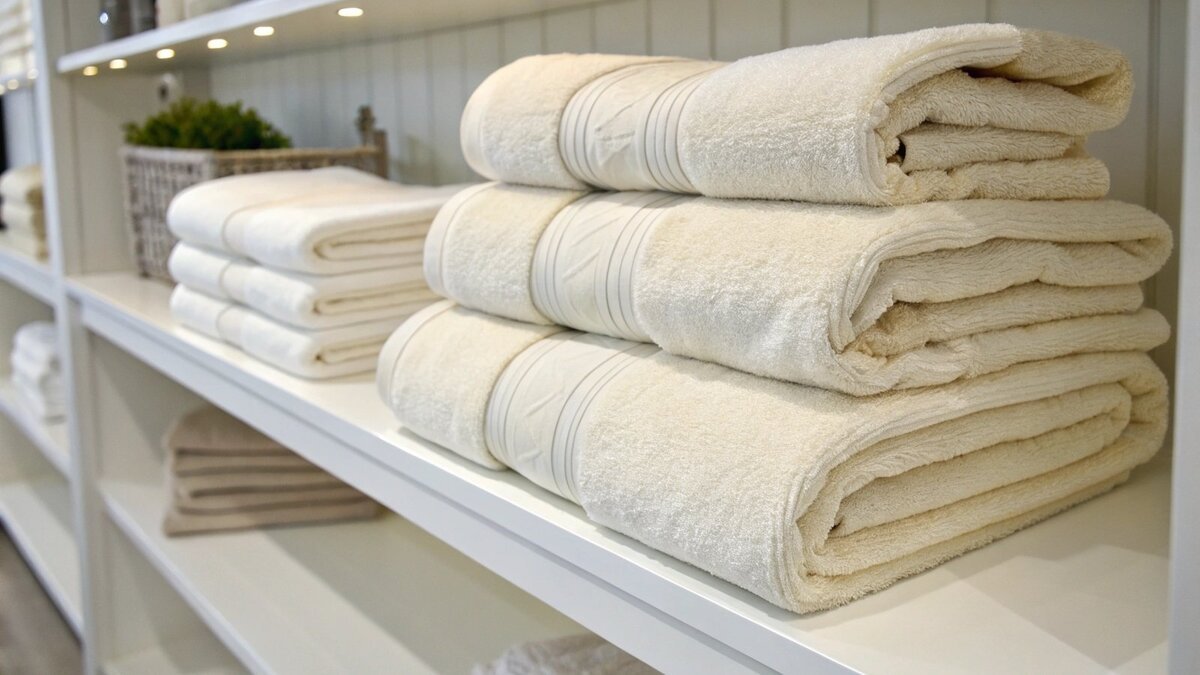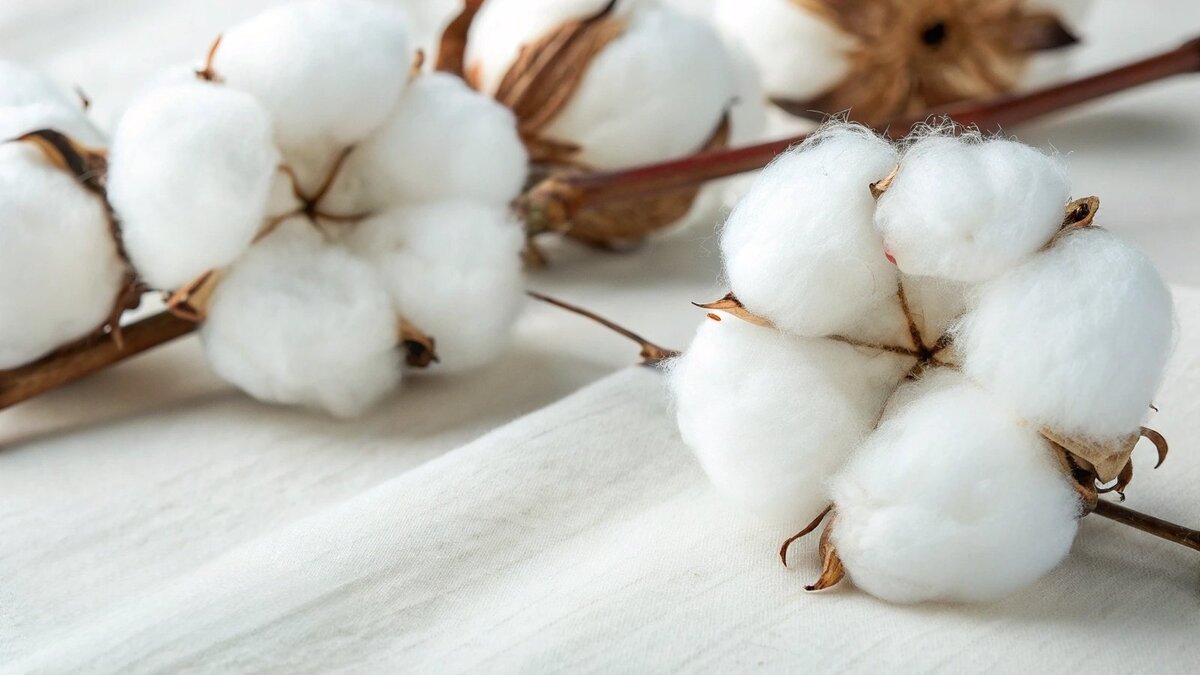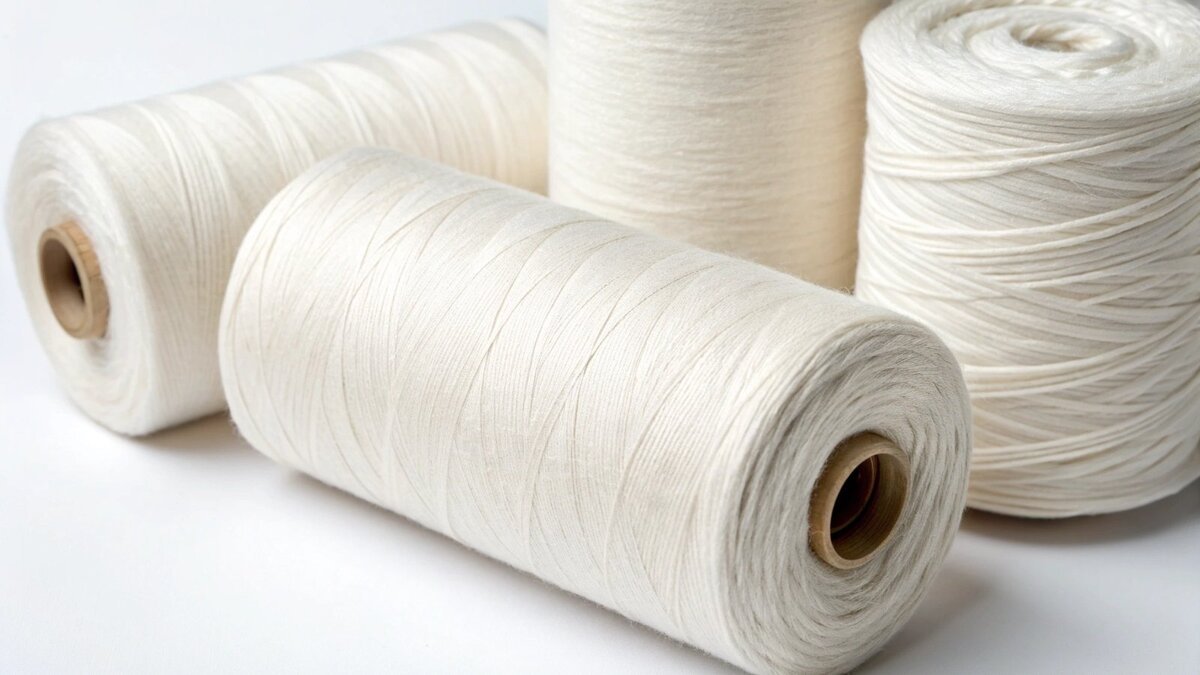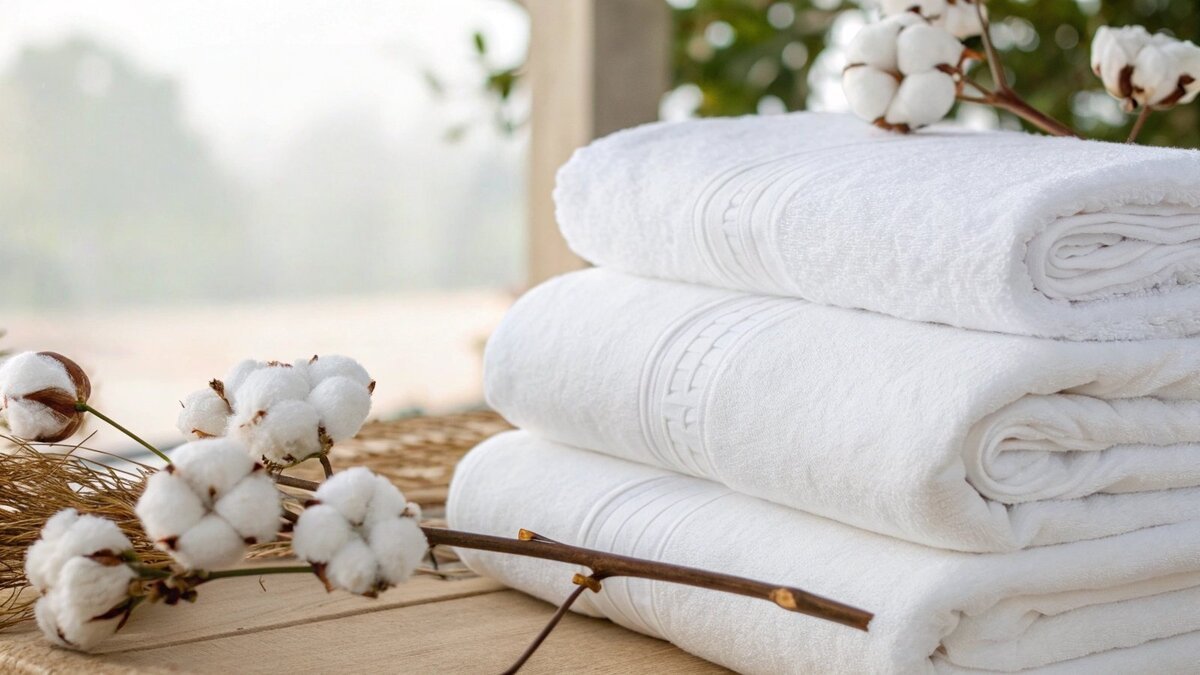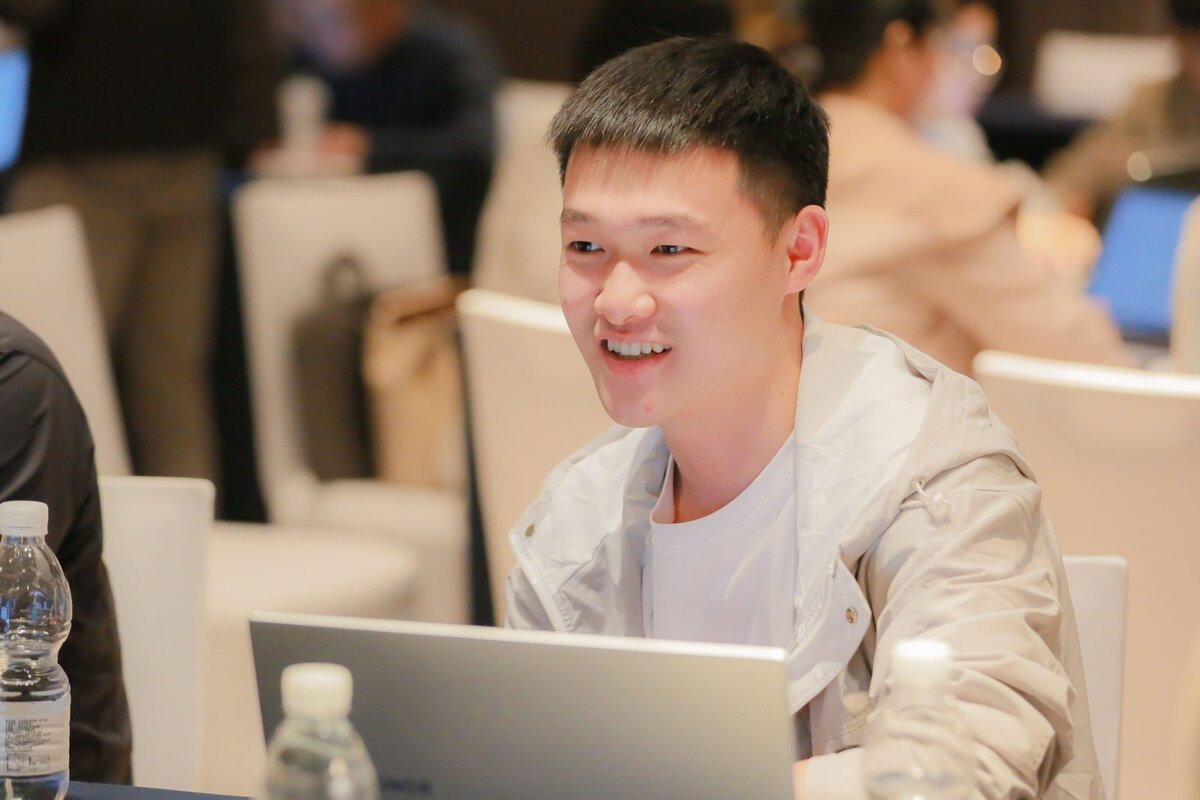Struggling to choose between premium cottons for your towels? Making the wrong choice can lead to disappointed customers. I will help you understand the key differences for your brand.
Both Egyptian and Pima cotton are top-tier, extra-long staple (ELS) varieties known for incredible softness and durability. The main difference is their origin—Egyptian cotton is grown in Egypt, while Pima is primarily from the U.S. The best choice depends on your brand’s priorities.
Choosing the right raw material is one of the first, most critical decisions you’ll make. It directly impacts the feel, durability, and cost of your final product. Over the years, I have guided hundreds of clients through this exact choice. It is a frequent topic of conversation, and the answer isn’t always simple. Let’s dig deeper into the details so you can make a confident, profitable decision for your business.
Which cotton is better, Pima or Egyptian?
You want the best for your towels, but "best" is not always clear. Choosing between Pima and Egyptian cotton can feel like a high-stakes decision for your brand’s reputation.
Neither is definitively "better," as they are both premium ELS cottons. However, Pima, especially U.S.-grown Supima®, offers certified purity and consistency. Egyptian cotton has a prestigious name, but its authenticity can vary. The better option depends on what your brand values more: certified consistency or historical luxury.
Let’s break down the comparison. In the textile world, we focus on measurable qualities, not just marketing names. Both Pima and Egyptian cotton belong to the same species, Gossypium barbadense, which is known for producing extra-long staple (ELS) fibers.
Fiber Length and Strength
The single most important factor for a luxury towel is fiber length. Longer fibers create smoother, stronger, and finer yarns. This means the finished towel is softer, more absorbent, and far less likely to pill or shed lint over time. Both genuine Pima and genuine Egyptian cotton excel here. They produce towels that get softer with each wash, which is a hallmark of quality that customers notice.
Feel and Absorbency
Because the yarns are finer and stronger, we can construct the towel with more loops per square inch. This creates a dense, plush pile that feels incredibly luxurious. It also increases the surface area, making the towel highly absorbent. From my experience in manufacturing, the finishing process is also key. A skilled factory can take high-quality cotton and make it feel even better, while a poor factory can ruin it. The raw material is the foundation, but the manufacturing process builds the house.
The Certification Challenge
Here is the biggest difference for business owners. Pima cotton, especially from the USA, is often marketed as Supima®. Supima® is a licensed trademark that guarantees the product is made from 100% American Pima cotton. This supply chain is traceable and verified. "Egyptian cotton," on the other hand, is a more general term. While true Giza cotton from the Nile River Valley is exceptional, sometimes shorter-staple cotton grown in Egypt is sold under the same name. Without a trusted supplier, it’s hard to verify you’re getting true ELS quality. This is why we always provide fiber reports and certifications to our clients.
| Feature | Pima Cotton (Supima®) | Egyptian Cotton (Giza) |
|---|---|---|
| Origin | USA, Peru, Australia | Egypt (Nile River Valley) |
| Staple Length | Extra-Long Staple (ELS) | Extra-Long Staple (ELS) |
| Certification | Strong (Supima® license) | Varies, can be inconsistent |
| Feel | Soft, silky | Soft, silky |
| Durability | Very high | Very high |
| Best For | Brands wanting a guarantee | Brands using a luxury story |
What cotton is better than Egyptian cotton?
You believe Egyptian cotton is the peak of luxury. You might be missing another option that gives you more certainty and consistency for your towel line.
Supima® cotton is often considered a more reliable choice. It is a specific type of Pima cotton that is 100% grown in the USA and strictly regulated. This trademark guarantees the cotton is genuinely extra-long staple, offering unmatched consistency, strength, and vibrant color retention.
When I talk to brand owners, their biggest fear is inconsistency. They worry that their second order of towels won’t be as good as their first. This is where Supima® cotton provides a real advantage over the more generic "Egyptian cotton" label.
The Supima® Guarantee
Supima® is not just a type of cotton; it’s a licensed brand managed by a non-profit organization. Its mission is to promote and protect the purity of American Pima cotton. For a manufacturer like me, this is a huge benefit. It means the raw material is scientifically verified and traceable from the farm to my factory. For you, the brand owner, it means you can confidently market your towels as "Made with Supima® cotton" and know that you are delivering on that promise every time. The supply chain is clean and transparent, which removes a major business risk.
Why Consistency Matters for Brands
Imagine your new towel goes viral. Demand explodes, and you need to place a large reorder fast. With Supima®, the fiber quality is consistent. This means the color, softness, and durability of your 5,000th towel will match your first sample. This is crucial for scaling your brand. I have seen clients struggle with unverified Egyptian cotton, where the quality and even the shade of white can differ from one batch to the next. That creates inventory nightmares and unhappy customers. At TowelTrend, we keep shade records and use in-house quality control, but starting with a consistent fiber like Supima® makes the entire process smoother and more predictable. It allows brands to scale quickly after a successful small-quantity test run, which is exactly what our customers need.
What type of cotton is the highest quality?
Chasing the "highest quality" cotton can be confusing. With so many names, it is hard to know what truly delivers the best performance for your premium towels.
The highest quality cottons are defined by their fiber length, known as extra-long staple (ELS). Sea Island, certain Giza varieties of Egyptian cotton, and Supima® Pima cotton are the top contenders. They all produce exceptionally soft, strong, and durable yarns ideal for luxury goods.
As someone who has worked with textiles for decades, I can tell you that "quality" in cotton is not subjective. It is a measurable characteristic directly related to the length of the individual fibers, or the "staple."
It’s All About the Staple Length
Cotton quality can be broken down into simple tiers based on fiber length. The longer the fiber, the better the yarn we can spin from it.
- Extra-Long Staple (ELS) Cotton: These fibers measure over 1 3/8 inches. This is the gold standard for luxury textiles. The long, silky fibers create the strongest, softest, and most lustrous yarns. This is the category where you find Supima® (Pima) and Giza (Egyptian) cotton. Towels made from ELS cotton are incredibly durable and resist pilling.
- Long-Staple (LS) Cotton: These fibers measure between 1 1/8 and 1 1/4 inches. This is still very good quality cotton, used for high-end apparel and bedding. It’s a step up from regular cotton but doesn’t have the same elite feel as ELS.
- Short-Staple (SS) Cotton: This is the most common type of cotton in the world, with fibers under 1 1/8 inches. The shorter fibers produce weaker, coarser yarns. Most everyday towels and t-shirts are made from this.
A Practical Definition of Quality
While ultra-rare cottons like Sea Island technically exist, they are not a viable option for scalable brands due to their scarcity and extreme cost. For practical business purposes, the highest quality cottons you should be considering are Supima® and verified Giza Egyptian cotton. For my clients, the "highest quality" choice is one that combines a luxurious feel with a reliable, repeatable supply chain. It’s about finding a material that not only wows the end customer but also supports a healthy, growing business. That balance is the true definition of quality in manufacturing.
Is Egyptian cotton worth the extra cost?
Egyptian cotton has a premium price tag. Is this a smart investment for your brand, or are you just paying for a well-known name without a real guarantee?
Genuine, certified Giza Egyptian cotton is worth the cost for its unmatched softness, strength, and brand recognition. However, the risk is paying a premium for unverified "Egyptian cotton" that is not ELS quality. The cost is justified only when you confirm its authenticity.
This question comes down to a cost-benefit analysis for your brand. The name "Egyptian Cotton" carries significant marketing power. Customers around the world associate it with five-star hotels and ultimate luxury. But as a business decision-maker, you have to look beyond the marketing story.
When the Cost is Justified
For brands targeting the high-end luxury market, using genuine Giza Egyptian cotton can be a powerful differentiator. The story of cotton grown in the fertile Nile River Valley is compelling. If you are selling to luxury boutiques or supplying premium hotels, the investment can pay for itself through higher retail prices and enhanced brand perception. When the cotton is authentic ELS Giza, the product lives up to the hype. The towels are truly spectacular in their softness and longevity. In this case, yes, the extra cost is an investment in a superior product and a powerful brand story.
The Hidden Costs of Poor Quality
The danger lies in paying the premium price without getting the premium product. I have seen many businesses get burned by suppliers offering "Egyptian cotton" that turned out to be a lower-grade fiber. The towels looked fine initially but started pilling and feeling harsh after only a few washes. The hidden cost here is immense: customer returns, negative reviews, and irreversible damage to your brand’s reputation for quality. This is why you cannot afford to take risks. You must work with a manufacturer who provides a transparent supply chain and full certification for the materials. Paying a premium for an unverified claim is not a smart business decision. It’s a gamble. At TowelTrend, our all-in upfront quotations mean you never face surprise fees, and our certification packets give you the certainty you need.
Conclusion
Both Pima and Egyptian cotton make excellent towels. Your final choice depends on balancing brand story, budget, and the need for certified consistency to protect your investment and reputation.

